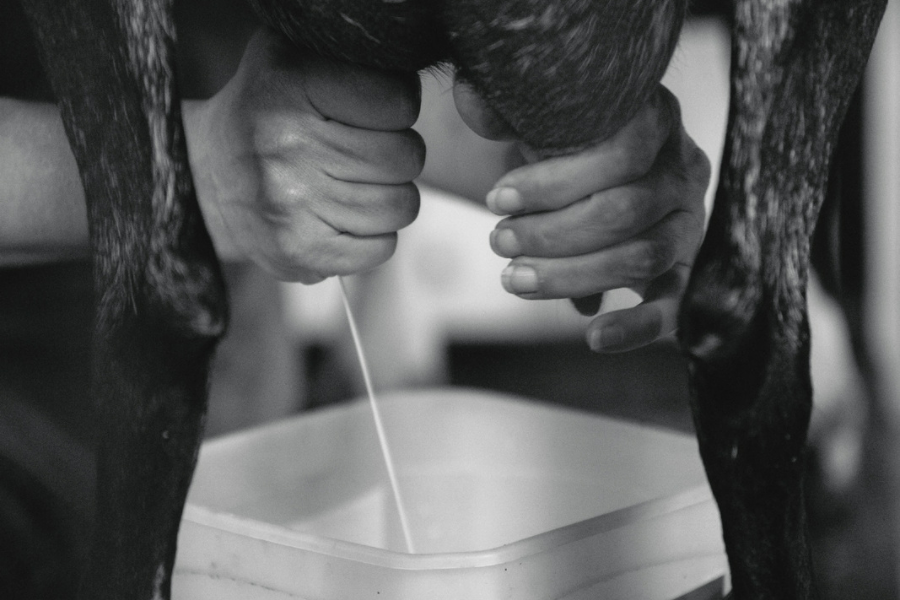
Is Cow’s Milk Safe For Your Baby? Here’s The Truth!
30 May 2022 | 4 min Read
Sayani Basu
Author | 607 Articles
While nutritious and rich in protein and calcium, as well as nutrients including vitamin B12 and iodine, cow’s milk should not be fed to infants. As American Academy of Paediatrics (AAP) recommends it should specifically not be given to babies below the age of one as the little one’s digestive system isn’t fully developed yet and they cannot digest the high levels of the nutrients present in it including protein, sodium, and potassium.
Moreover, cow’s milk does not provide enough Vitamin E, iron and essential fatty acids to your infant. Studies also suggest that feeding cow’s milk to babies below one year is the primary reason for allergic diseases, including respiratory and digestive system, and can also lead to anaemia.
In addition, a National Family Survey figure found that around three percent of babies cannot tolerate milk protein in animal milk. Plus, milk allergic infants who do not get breast milk, need an alternative form of nutrition like formula milk to maintain their health.
When And How To Introduce Cow’s Milk To Kids
If a baby doesn’t have a family history of lactose intolerance or dairy allergy, he/ she can be introduced to cow’s milk after one year of age but in small quantities. To start off, it can be mixed with breast milk, formula milk, or boiled and cooled water to allow the little one to have a smooth transition. Initially, you can consider sneaking it in other foods of your baby’s choice, to check if the little one is able to digest it without any issues.
You can mix the cow’s milk with breast milk in the ratio of 1:3. This means that the mixed milk will be one-part cow’s milk and three parts of breast milk.
Gradually, you can start increasing the ratio of cow’s milk, while simultaneously reducing the ratio of breast milk. It is advisable to offer at least an hour before feeding time. This helps kids get the right nutrition from milk without compromising their appetite for other solid foods.
Cow Milk Vs. Breast Milk
Mums, remember that if the little one is breastfed till the first birthday, they are getting the best nutrition as it has the right mix of nutrients that your child needs for growth and development. Breast milk also has a higher fat content (than cow’s milk) that is vital for the growth of your baby.
Although cow’s milk is the most convenient source of calcium, protein, fats and Vitamin D, it does offer a viable alternative to breast milk.
What Should You Choose: Whole Milk Or Low Fat Milk?
Kids need to drink whole milk until two years of age. This is so because the fat in it is essential for their growth. After two years, the transition to low-fat or regular milk can be made depending on the weight range of the child. However, babies that are overweight or on the heavier side can be given low-fat milk from the start.
Alternatives to Cow’s Milk
If your little one is allergic to cow’s milk or is lactose intolerant, here are some alternatives:
- Soy milk: Soy milk is a popular alternative to cow’s milk and is widely available throughout the country. Having a similar nutritional value like cow’s milk, soy milk has an acquired taste that your child must get used to.
- Coconut milk: Coconut milk is rich in Vitamin B12 and Vitamin D and is readily available. It is creamy and tastes great.
- Almond milk: Available in different flavours, Almond milk has a neutral taste and creamy texture. It is highly nutritional and low in calories.
Though cow’s milk is a popular drink around the world and is a go-to for most kids, its not recommended for infants. However, once the one-year age barrier is crossed, they can be introduced to the nutritous and nutrient-rich cow’s milk.
A


Related Topics for you
Suggestions offered by doctors on BabyChakra are of advisory nature i.e., for educational and informational purposes only. Content posted on, created for, or compiled by BabyChakra is not intended or designed to replace your doctor's independent judgment about any symptom, condition, or the appropriateness or risks of a procedure or treatment for a given person.
